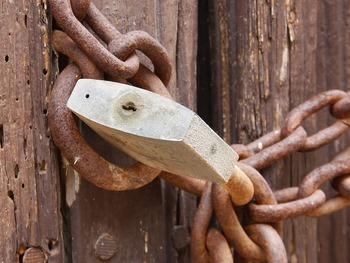Rusted Locks Caused by Sea Air
Living near the sea is undoubtedly one of the most interesting residential arrangements ever. This gives you the big advantages of a backdrop of scenic beauty, having the option to go out for swimming or sunbathing at your convenience, spending long evenings on the beach, and the likes. But there are some problems associated with the arrangement as well. It brings to light the big problem of the presence of salt in the air. The problem is bigger than it sounds. The salt reacts with metal locks and damages them. Let us find out what happens.
Does Sea Air Really Damage Locks?

Imagine driving along the sea with the windows rolled down. It must be really divine initially to feel the breeze through the hair. But what happens after that? You are left with sticky hair that becomes frizzy with the additional salt from the air. That is exactly what happens to locks in the sea areas. In reality, salt in the air does not restrict itself to locks alone. Instead, it attacks all kinds of metallic substances in the area. What exactly happens?
When locks and other metallic objects are exposed to air and water in the seaside area, it results in the formation of iron oxide on the surfaces. This process is called rusting. What this does is basically oxidize the metal and bring about some major chemical reactions within the substance that leads to its damage. This process is heightened when there is a lot of salt available in the atmosphere. Staying in a sea area has some disadvantages. This means all your metallic objects are exposed to excessive quantities of salt from the air and are prone to rust. Owing to the heavy chemical changes taking place in the substances, they usually become brittle over time and tend to break or wear off. In effect, the locks and other metal objects become unusable.
How To Deal With Rusty Locks?
Irrespective of all your efforts, your metallic locks will get rusted, brittle, and even break. There is not much you can do to prevent the rusting process. It is only a matter of time till you encounter the problem. This depends on your proximity to the sea. You are located very close to the sea; you will likely face lock corrosion very early. But what is the solution? Sure, you can try out different locks, and eventually, they will all get rusted. What is the best solution here?
Detect the problem early
One way to deal with saltwater lock corrosion is problem identification. The sooner you identify the issue, the easier it would for you to resolve it. For instance, if you notice something wrong with the lock early, you can take some measures to counter the problem, instead of having to spend money on new locks now and then. How do you spot a rusting problem early? The first sign would be a discoloration in the lock. This indicates seawater corrosion in the early stages. The indicative colors include brown, red, orange, and any other darker shades. Locks, keys, chains, and other metallic objects are subject to such corrosive activities.
Use rust cleaners
Once you detect the early signs of seawater corrosion, you could look for over-the-counter rust cleaners to help you get rid of the problem in the early stages. If the rusting is less, scraping off the layer of rust can do the job for you. You could top it off by adding a layer of an anti-rust coating on the metallic lock. It becomes more difficult to handle the rusting scenario when it reaches an extended stage. Here, you might have to remove jammed locks specifically. So, early detection of rusted locks is definitely an advantage here.
Use anti-rust locks
One of the most effective ways to deal with the problem of seawater rusting is using anti-rust locks. If you are living in sea areas or in saline conditions, it is a good idea to invest in anti-rust locks. These specially designed locks work well even in extremely saline conditions. Irrespective of salt content is present in the air, these locks can withstand the damaging effects. How do these locks work? Essentially, these are made from stainless steel that does not get brittle under heavy saline conditions. Along with the stainless steel bodies, these locks are covered in plastic.
Rubber Protection
Finally, there a layer of rubber added to protect the metal from getting rusted effectively. The rubber is usually present on the lock's interior so that they can work as weather-resistant substances. The materials used in the anti-rusk locks do not undergo chemical reactions when exposed to salt in the air or water. This is why such a lock can come in handy in beach areas.
In Conclusion....
While light rusting and discoloring can be handled by homeowners with solutions from local hardware stores, a more long term solution would require professional attention. It is recommended to get regular lock maintenance to prevent rusting even at the earliest stage. You can get in touch with the local locksmith professionals to maintain your lock even in saline conditions.
